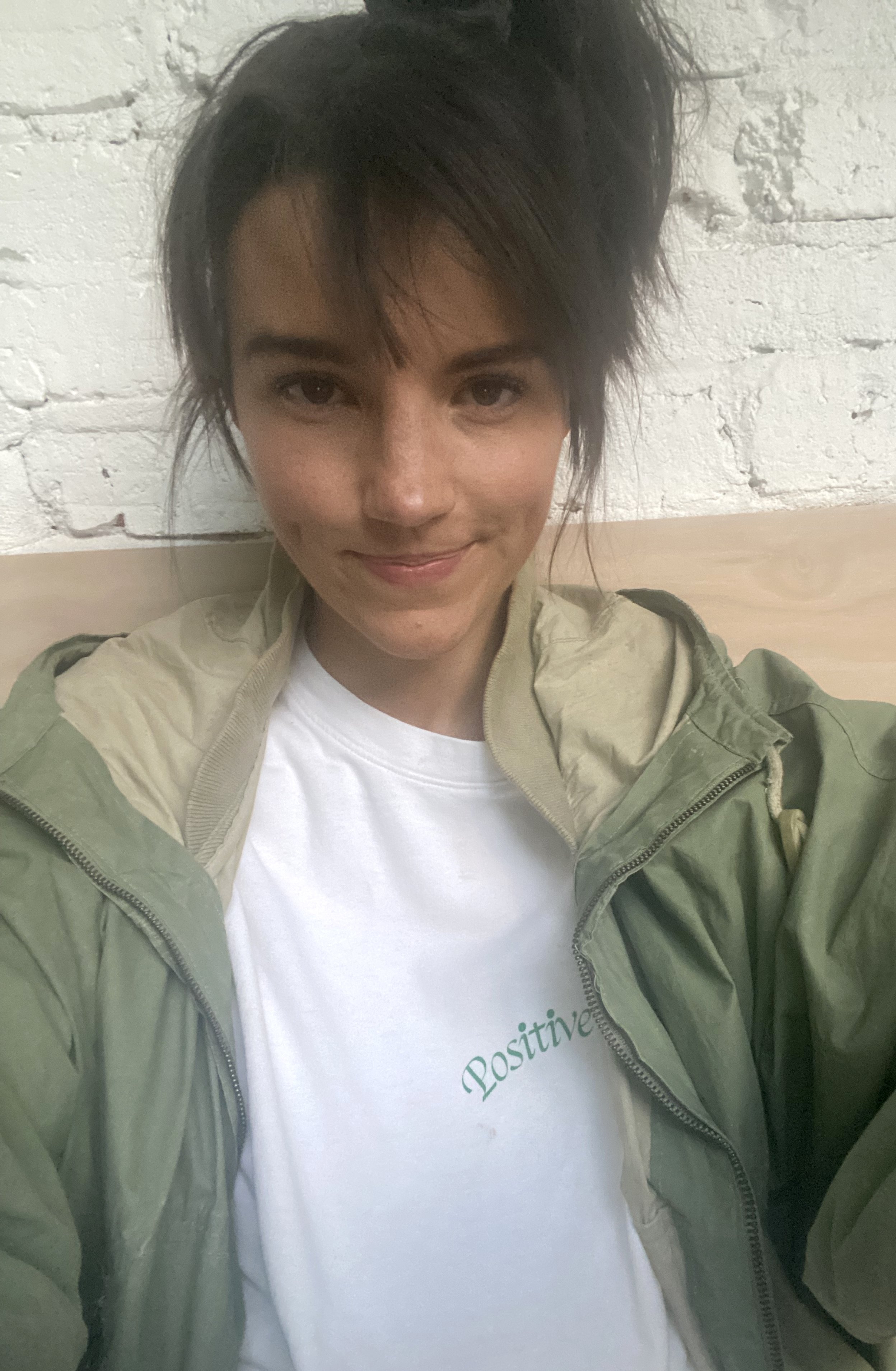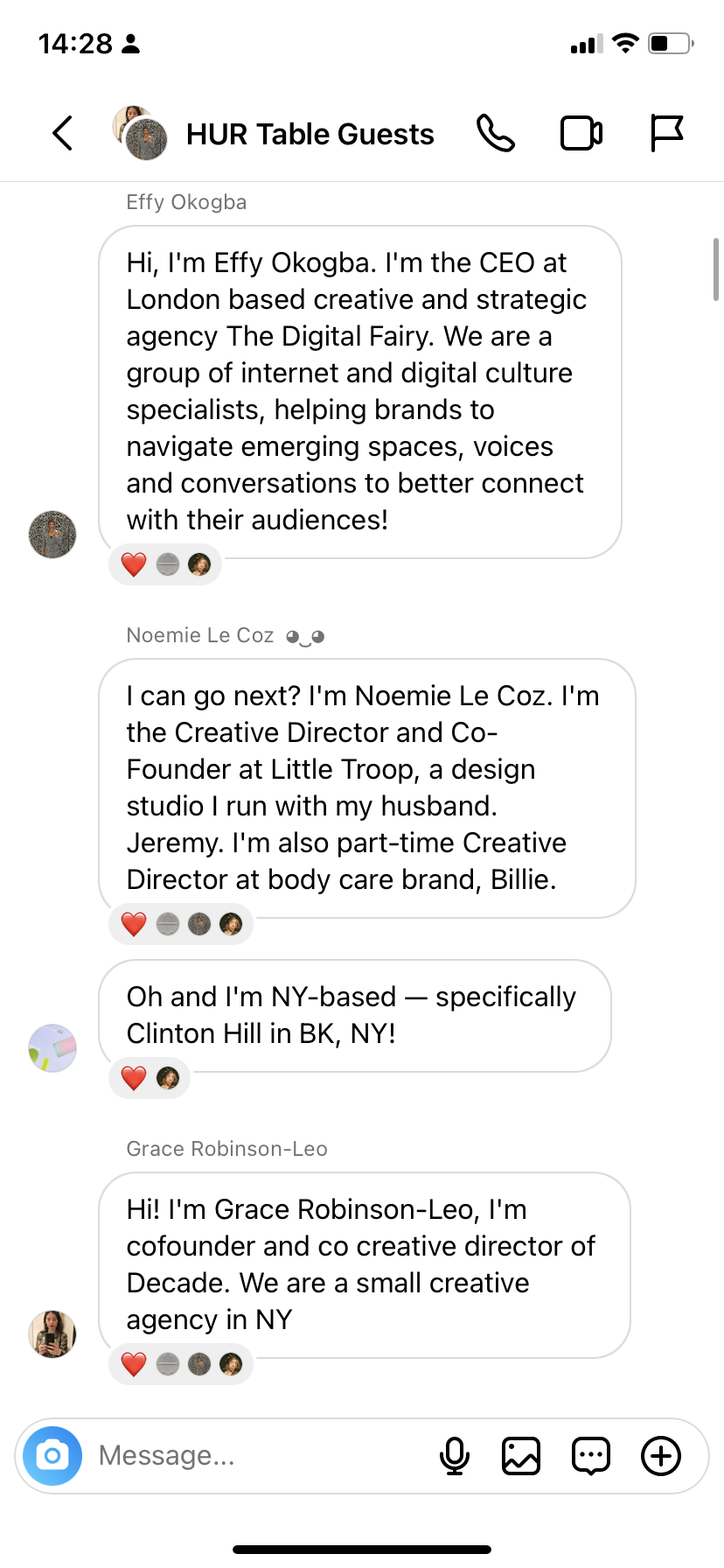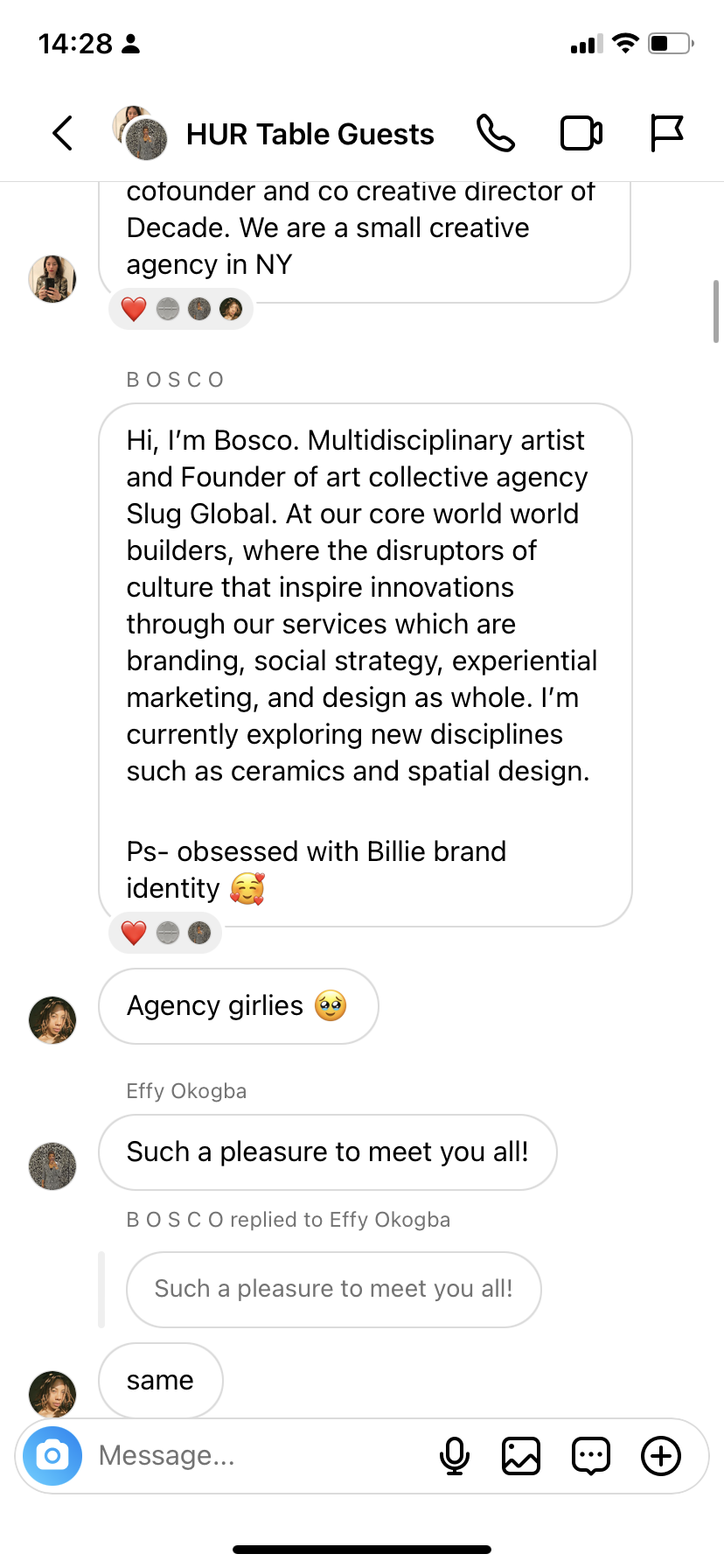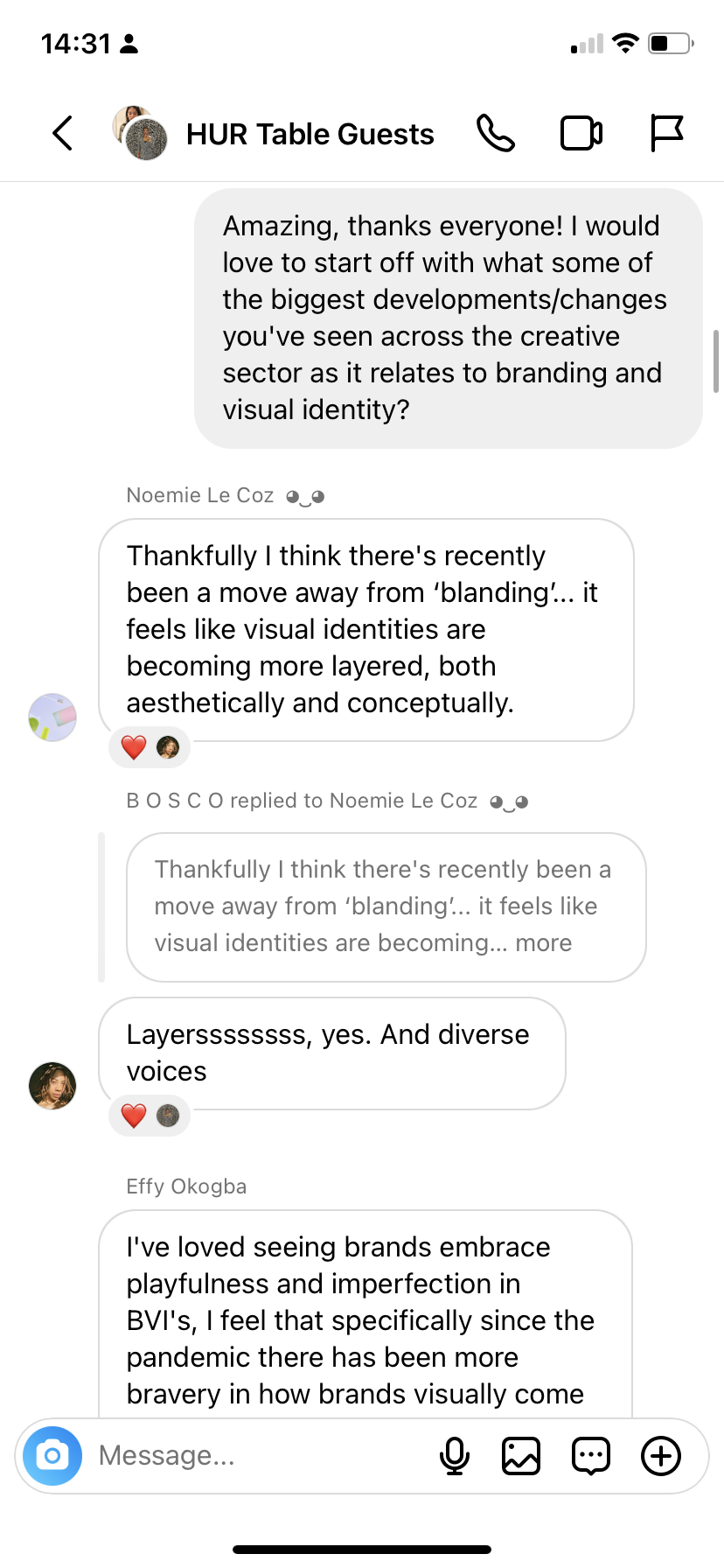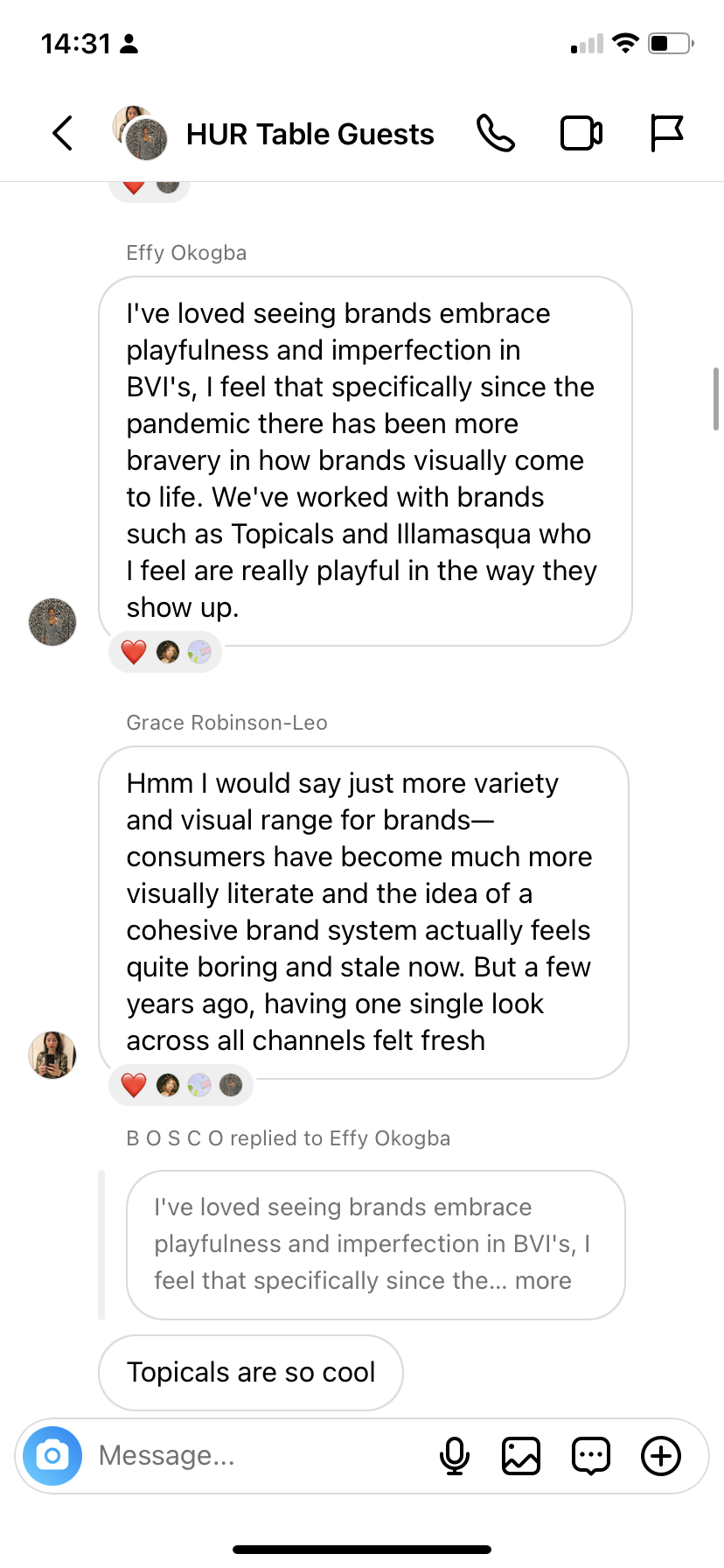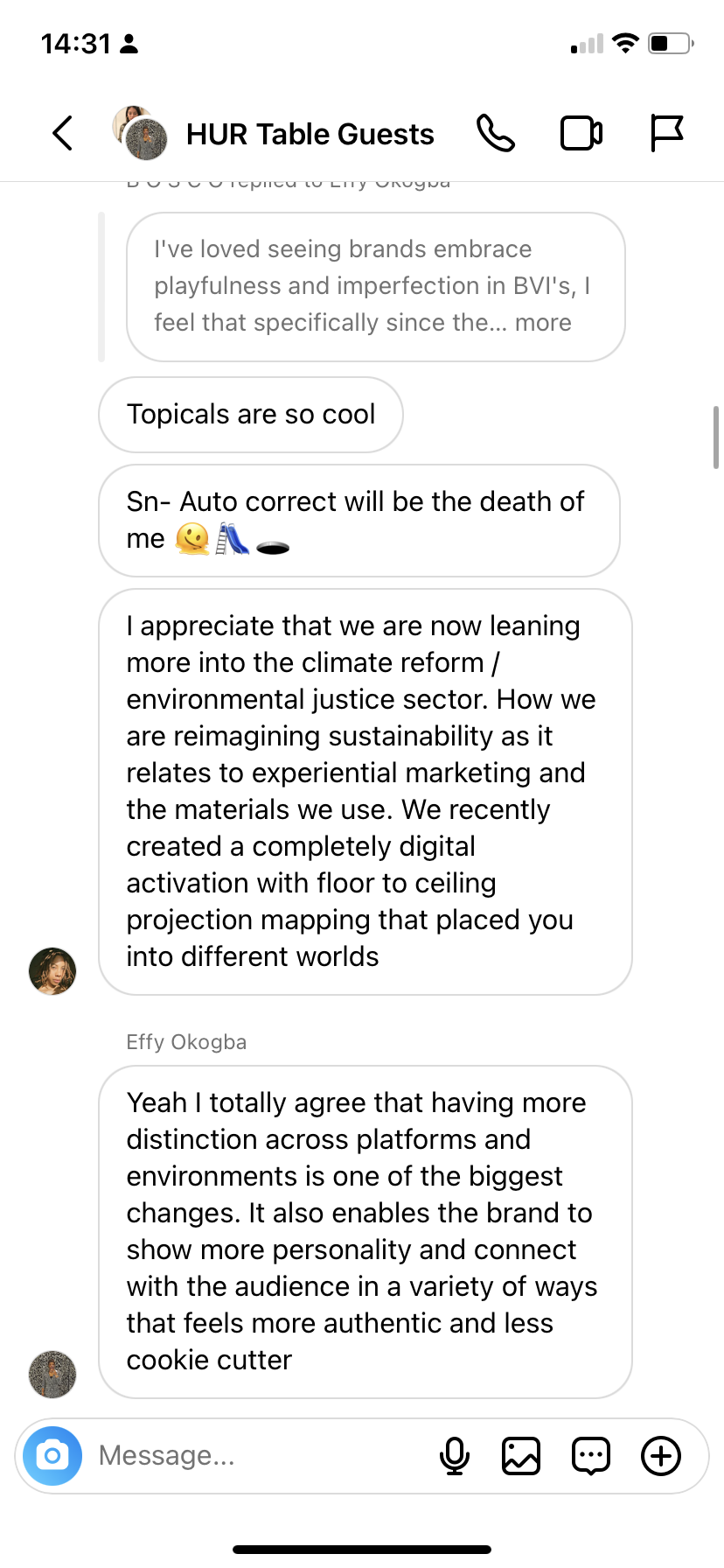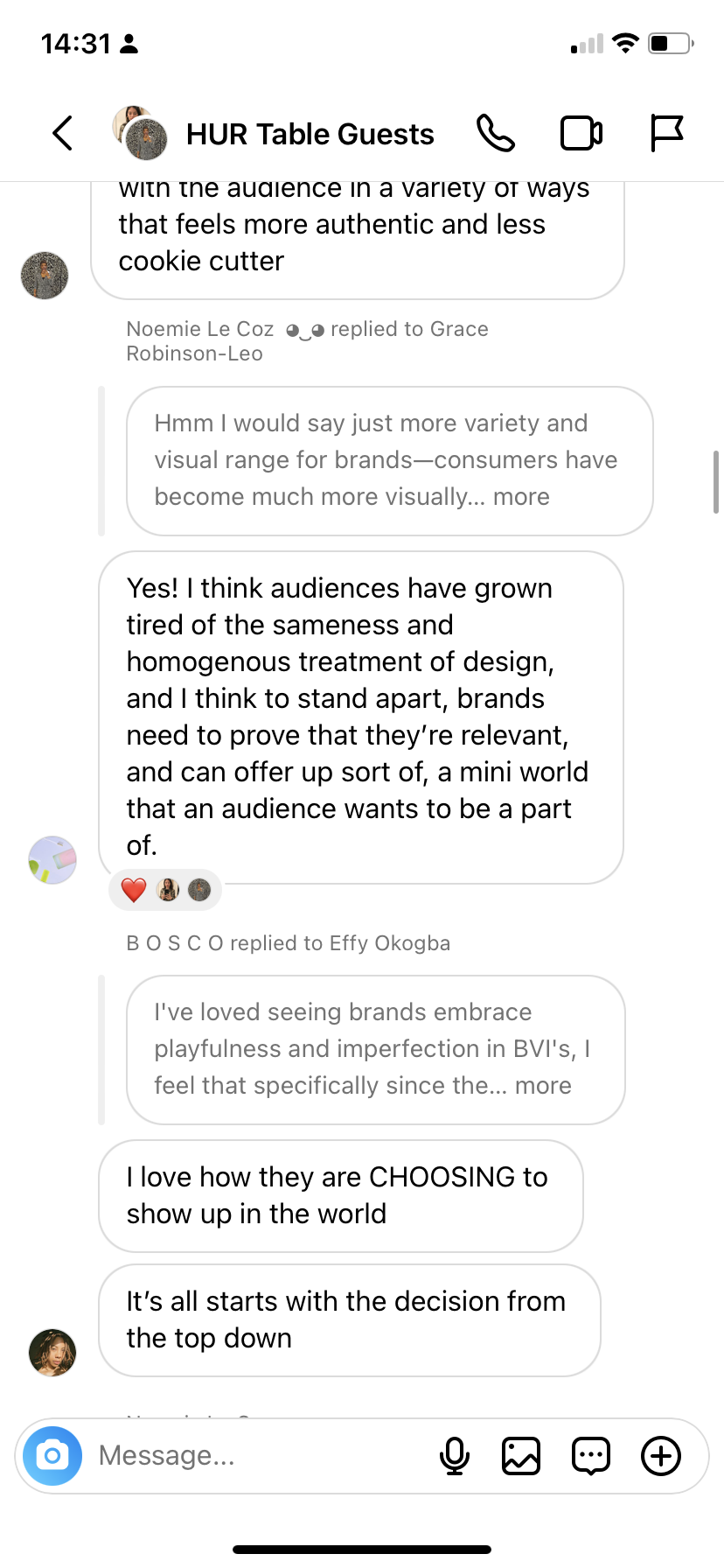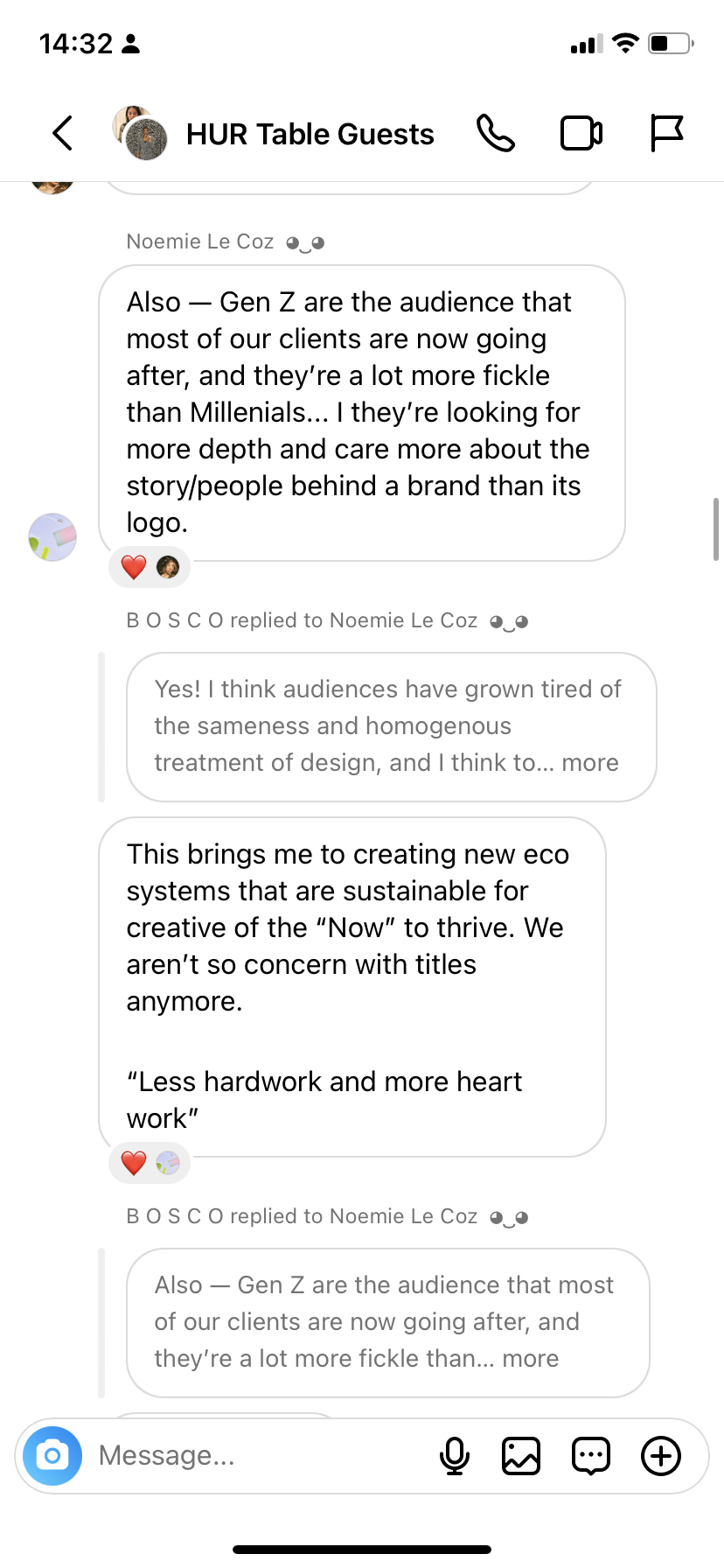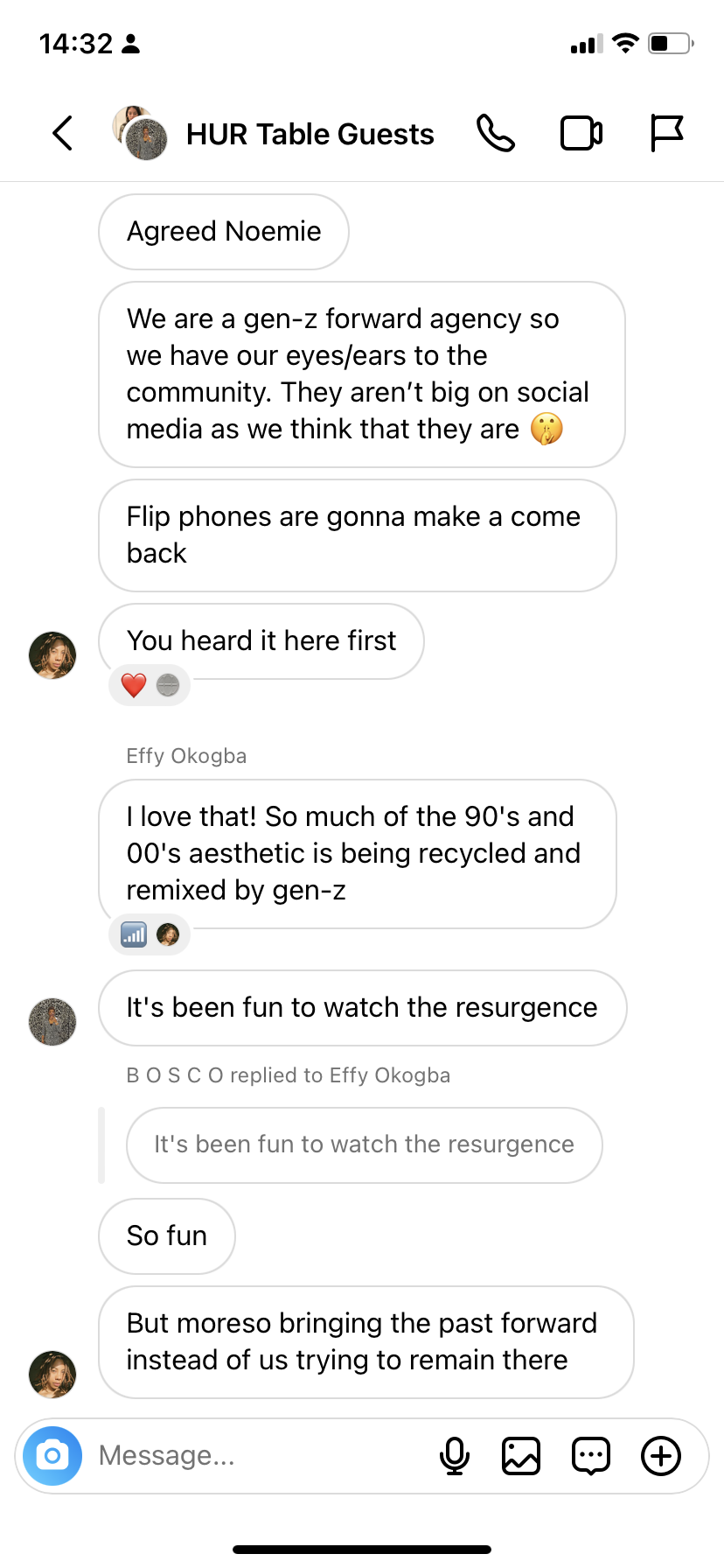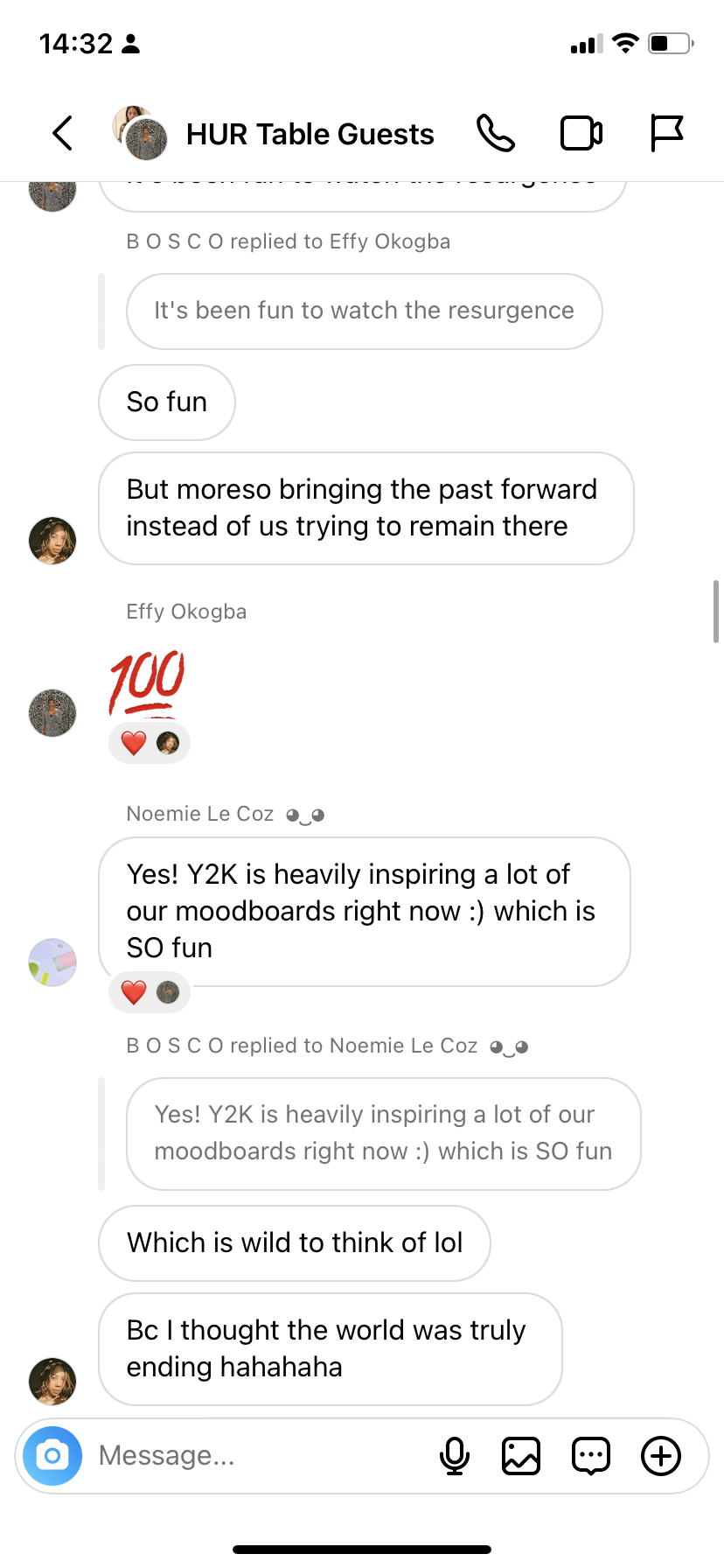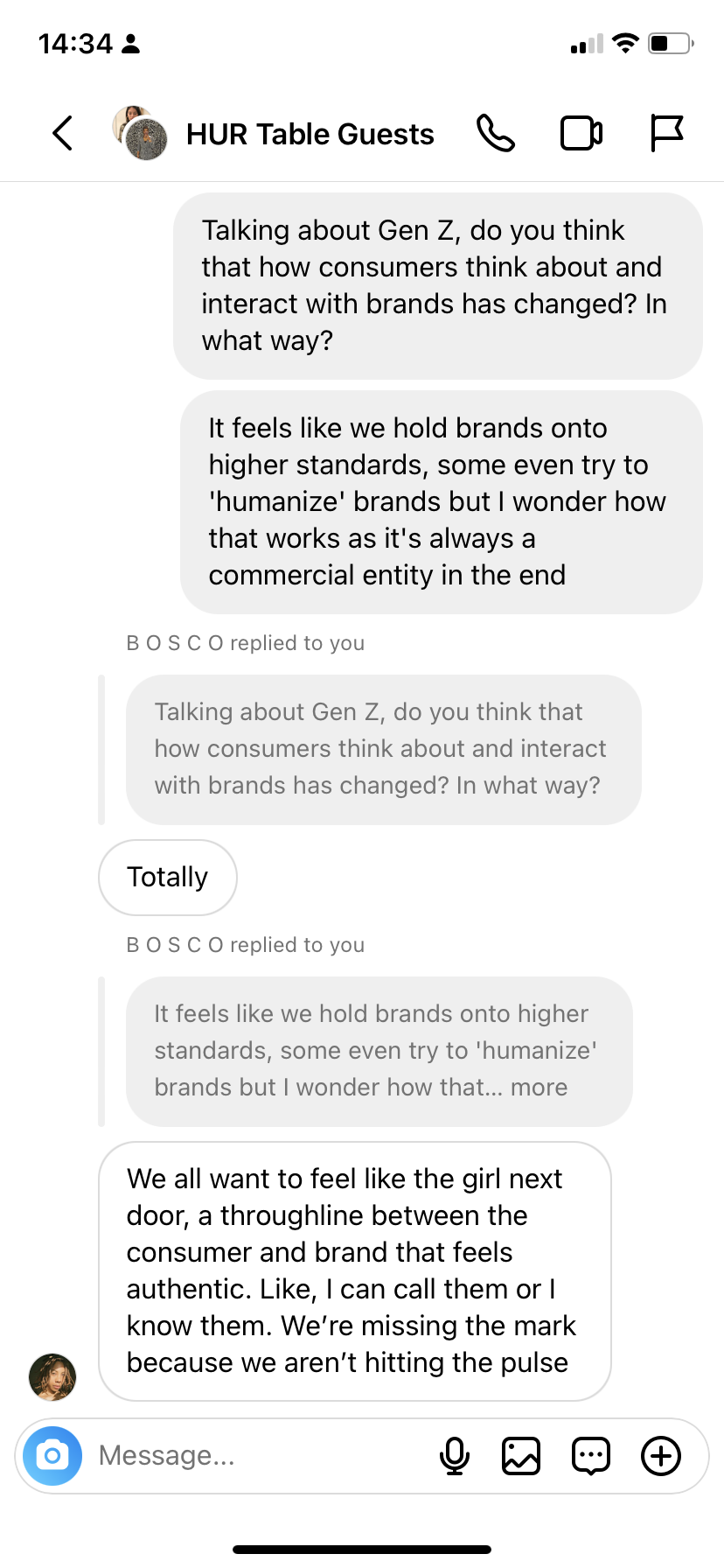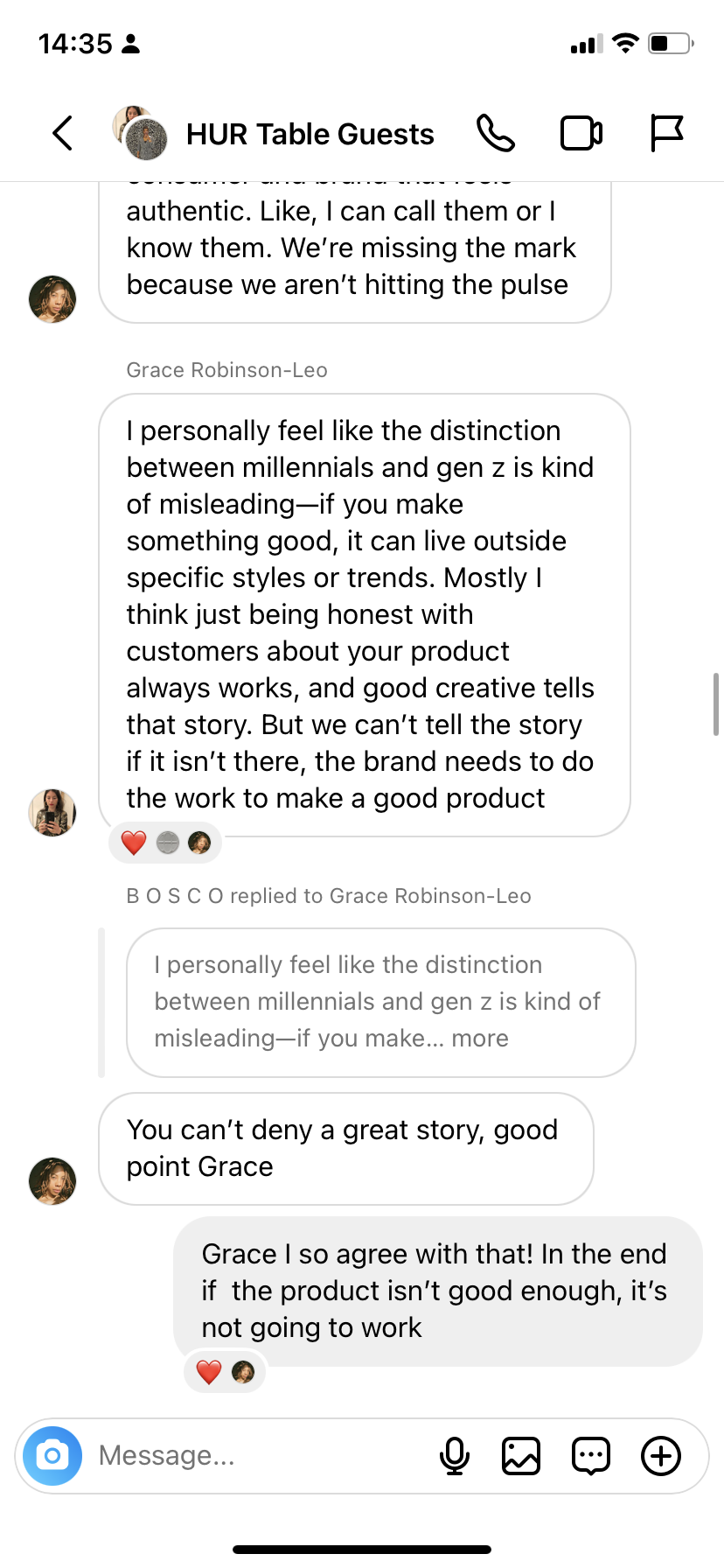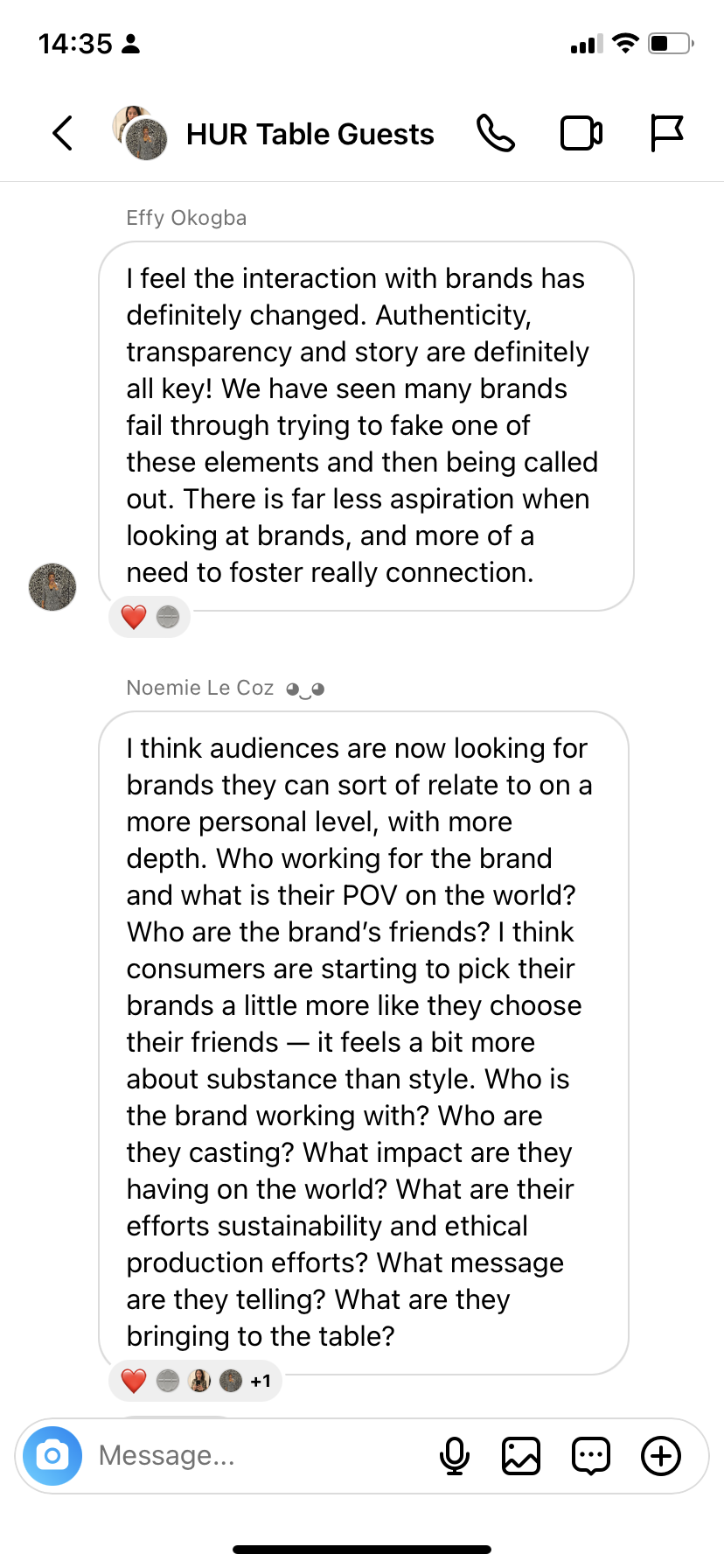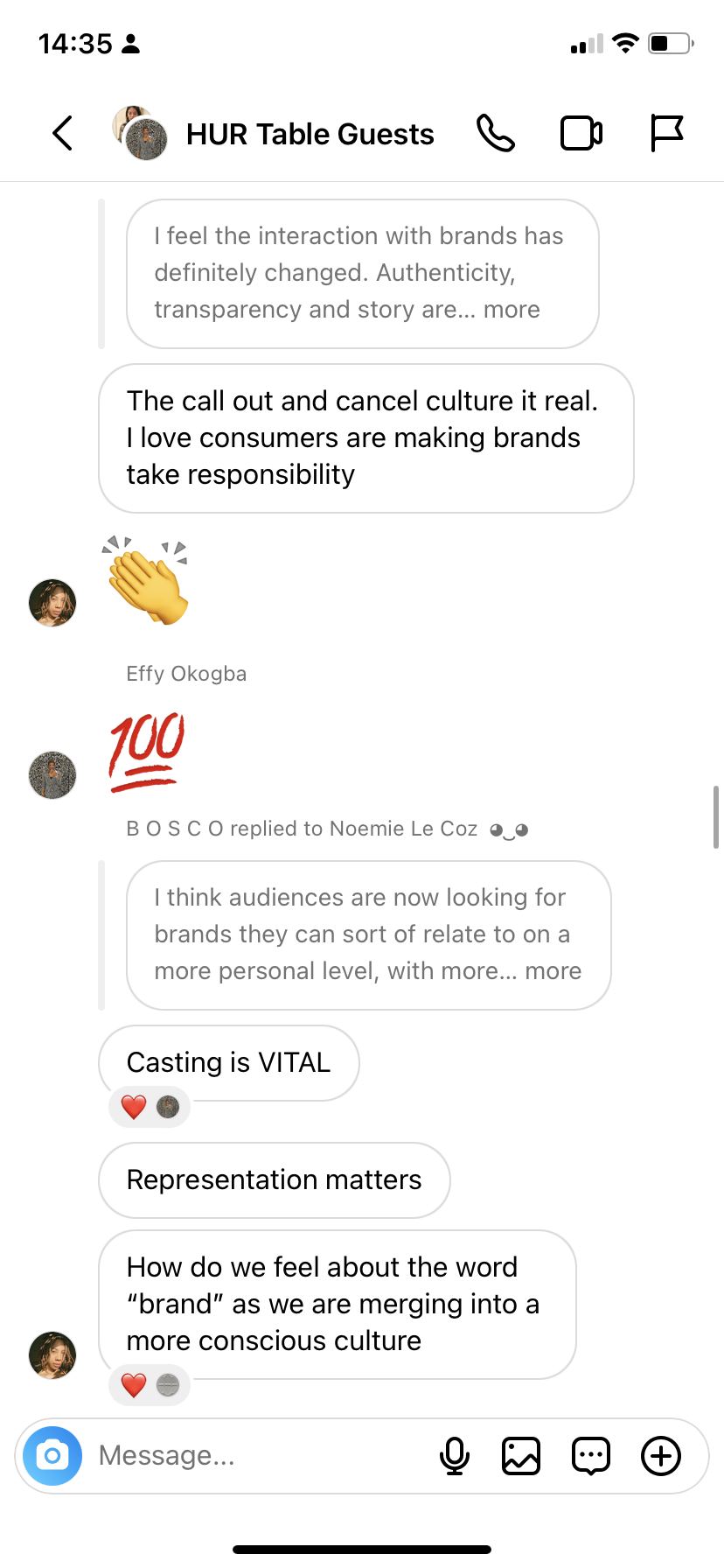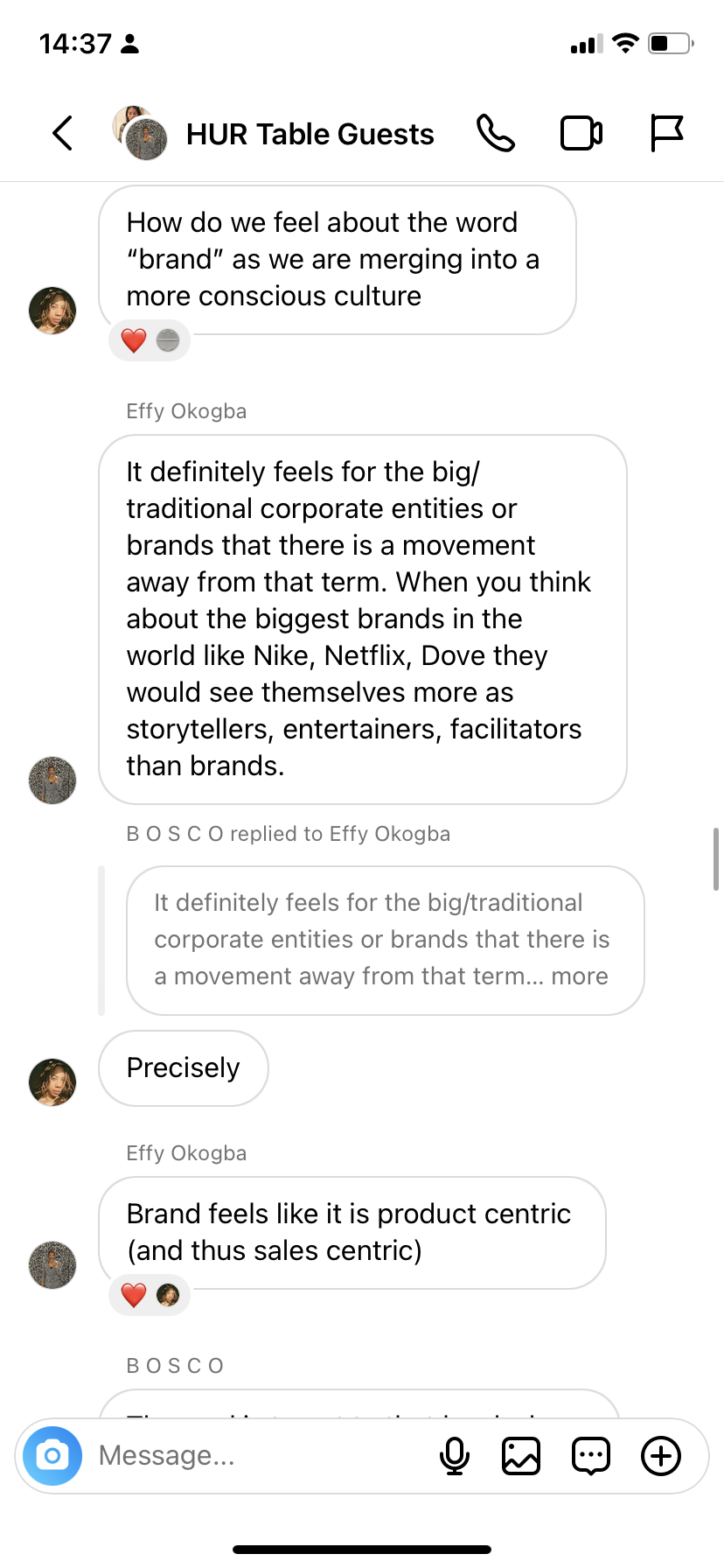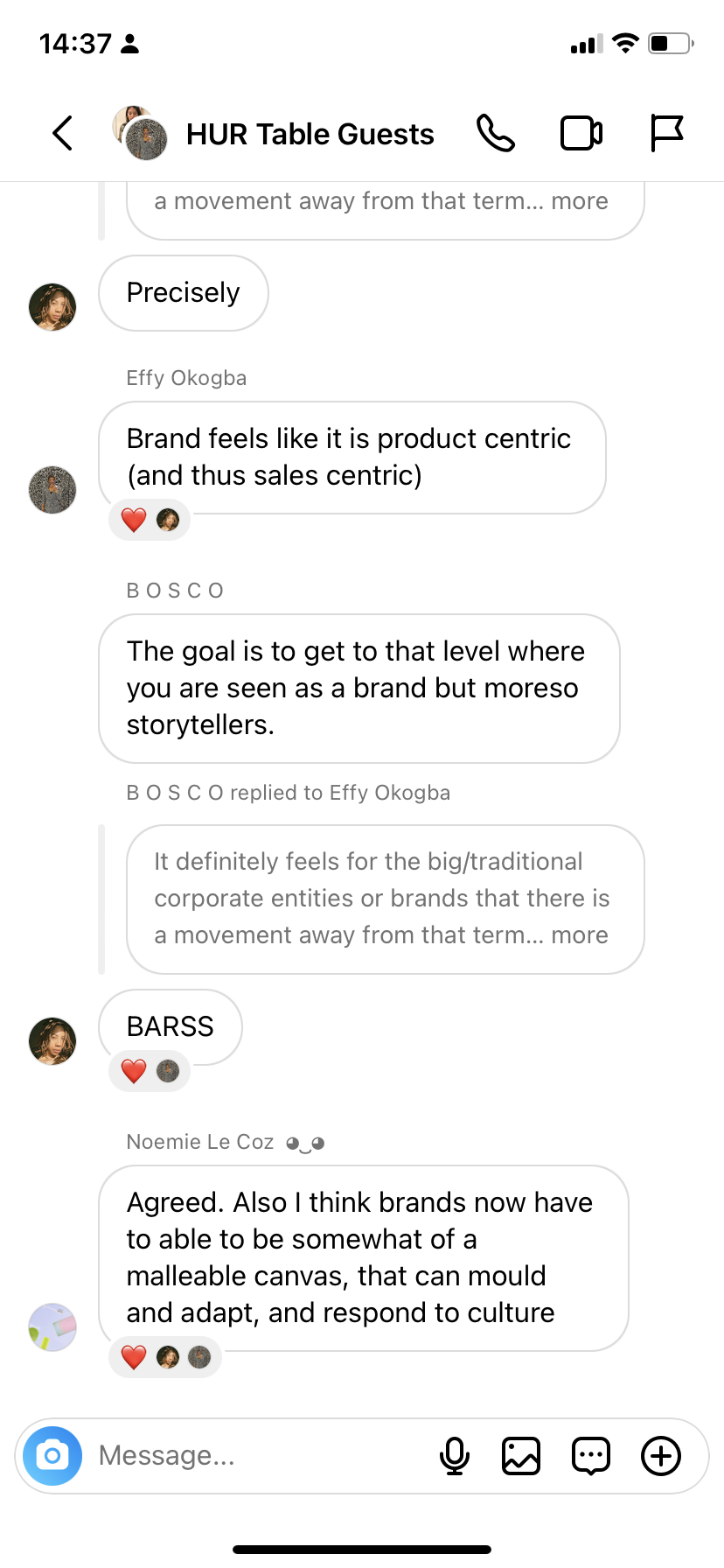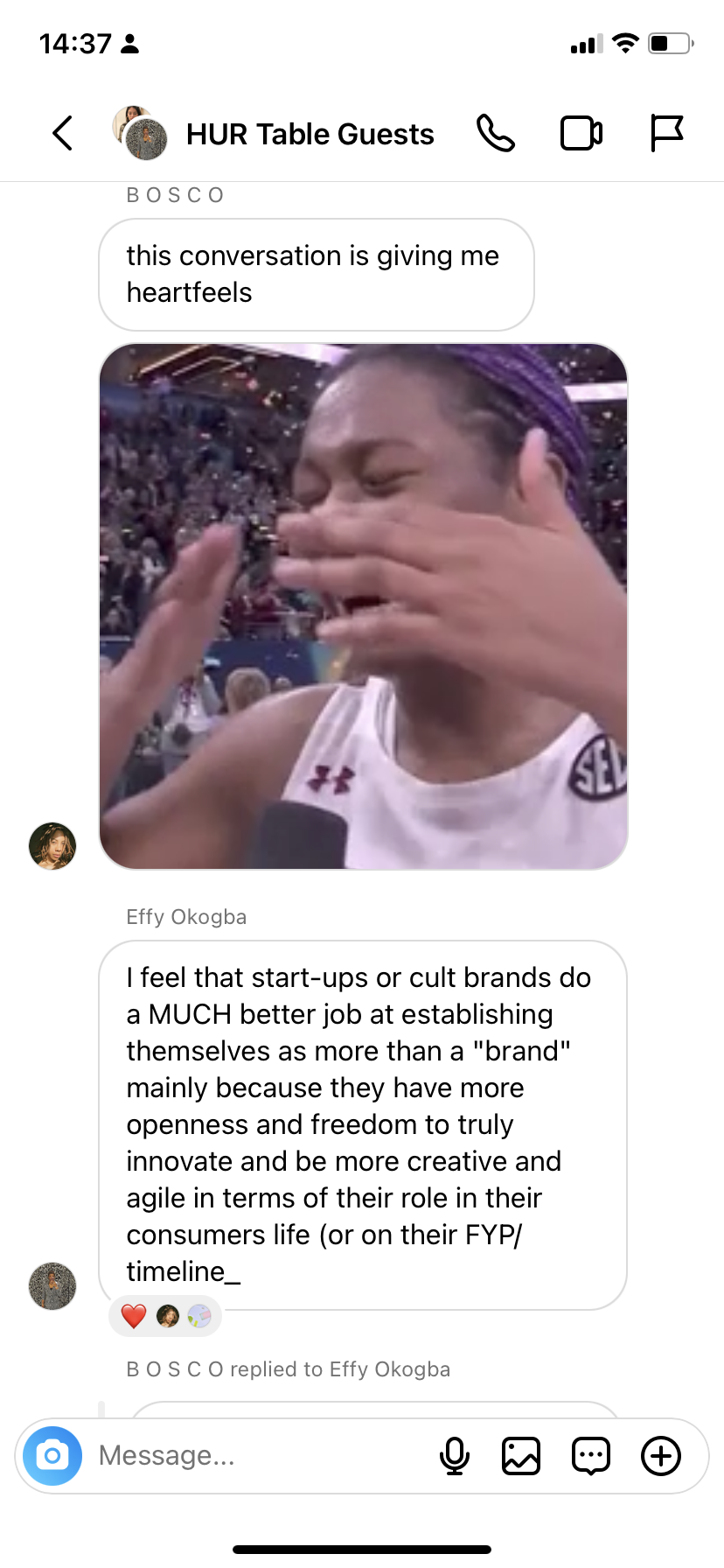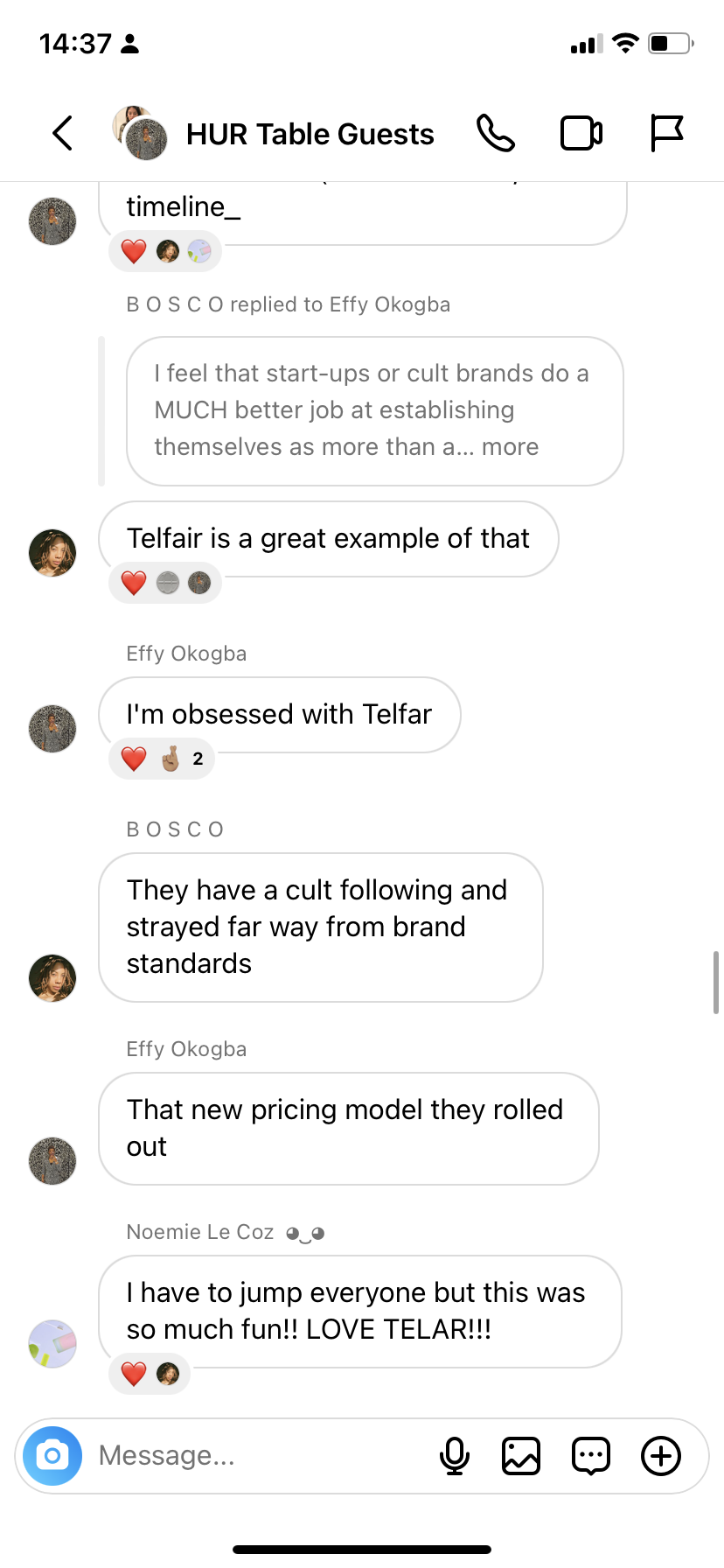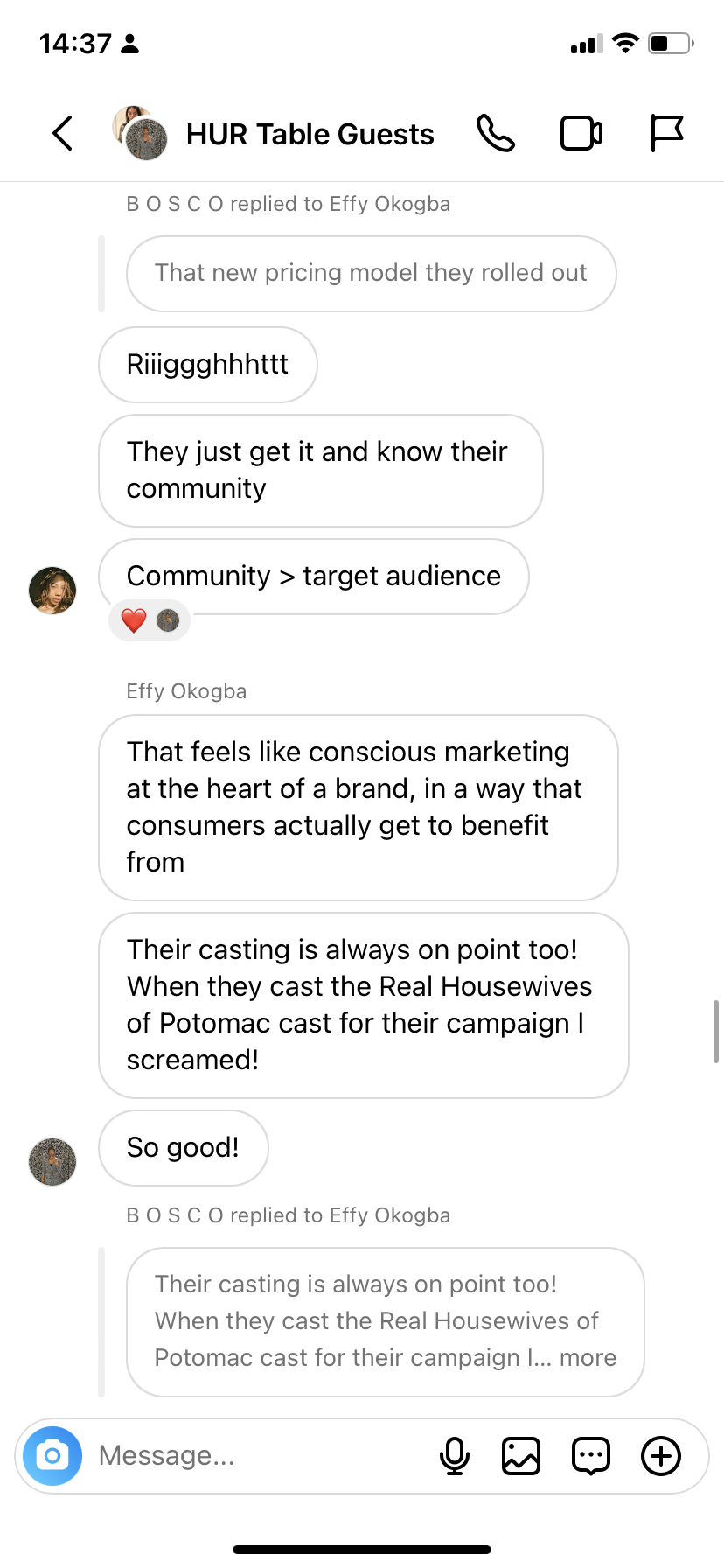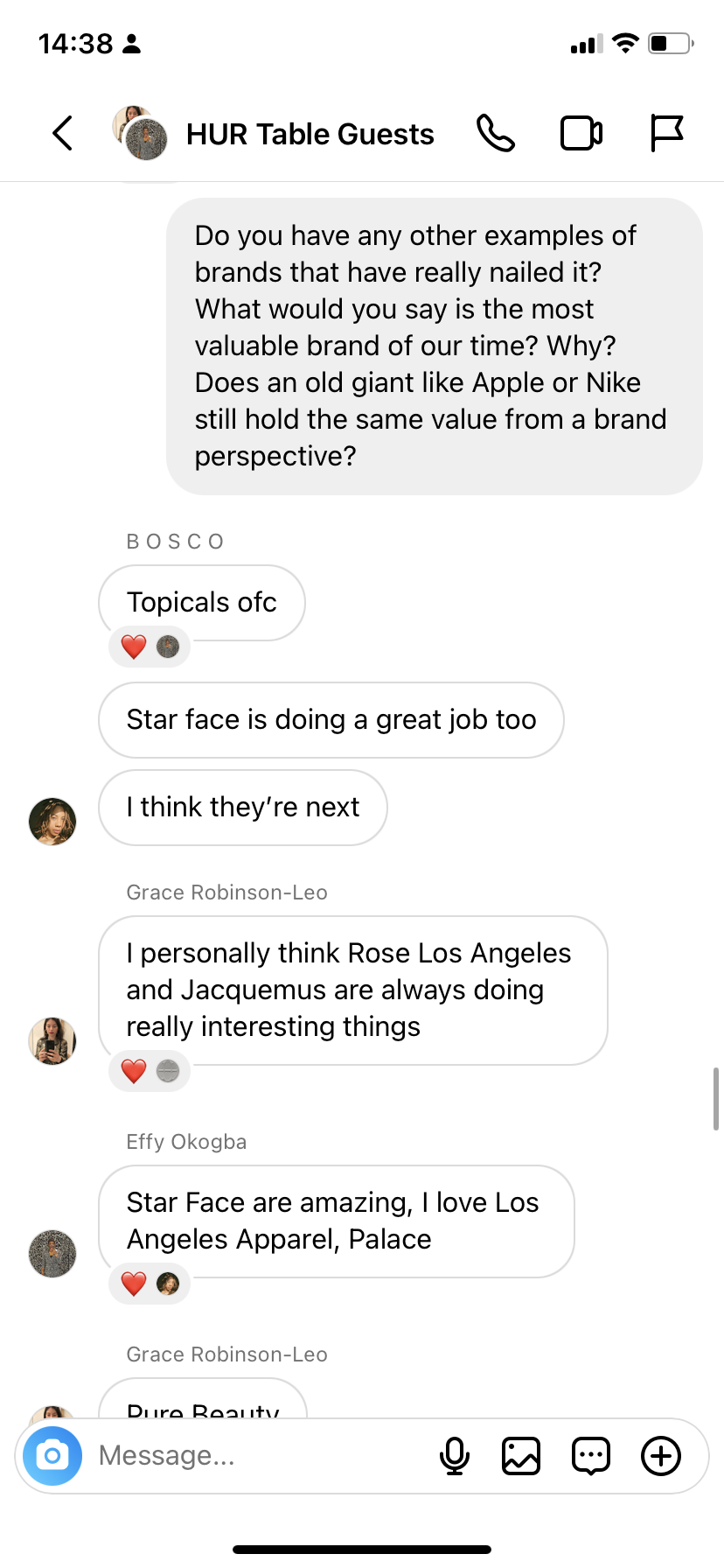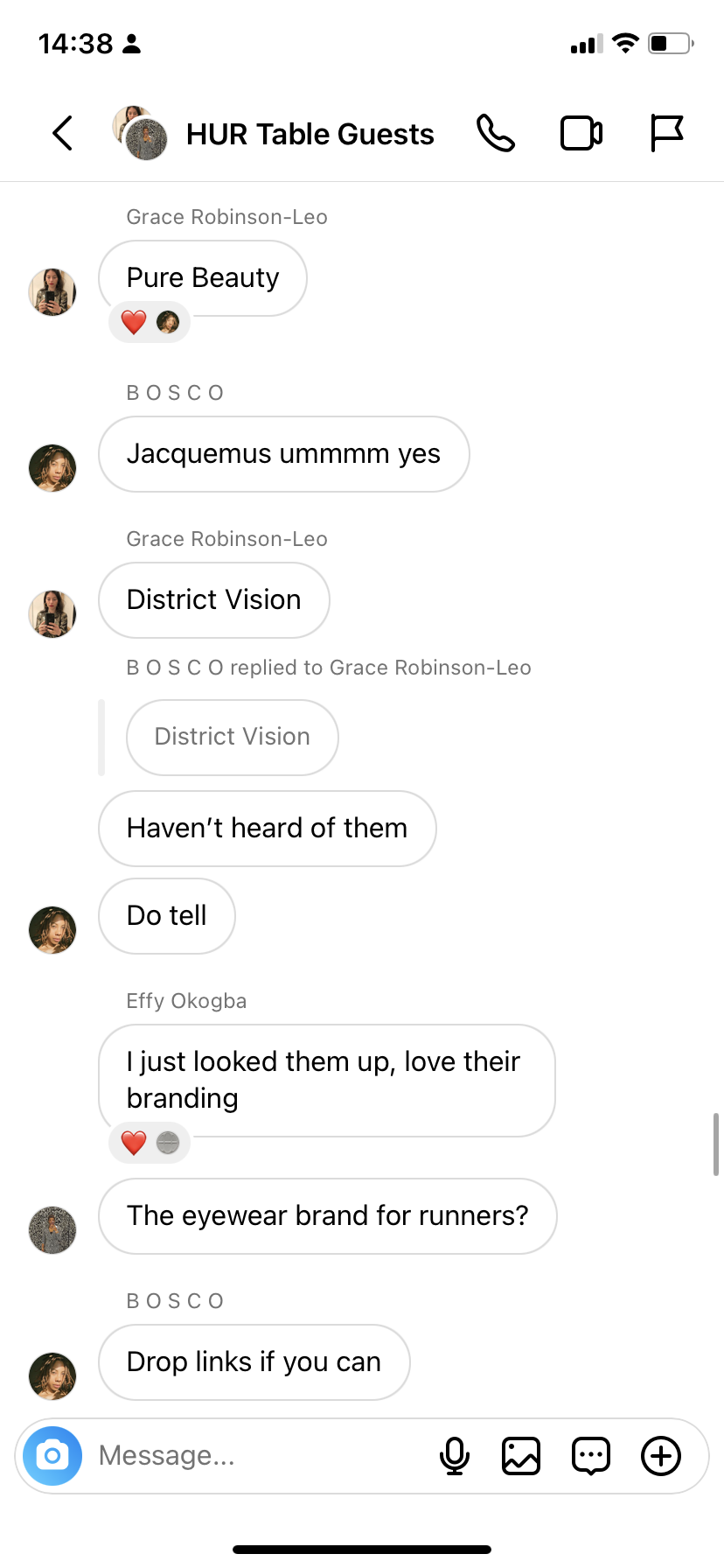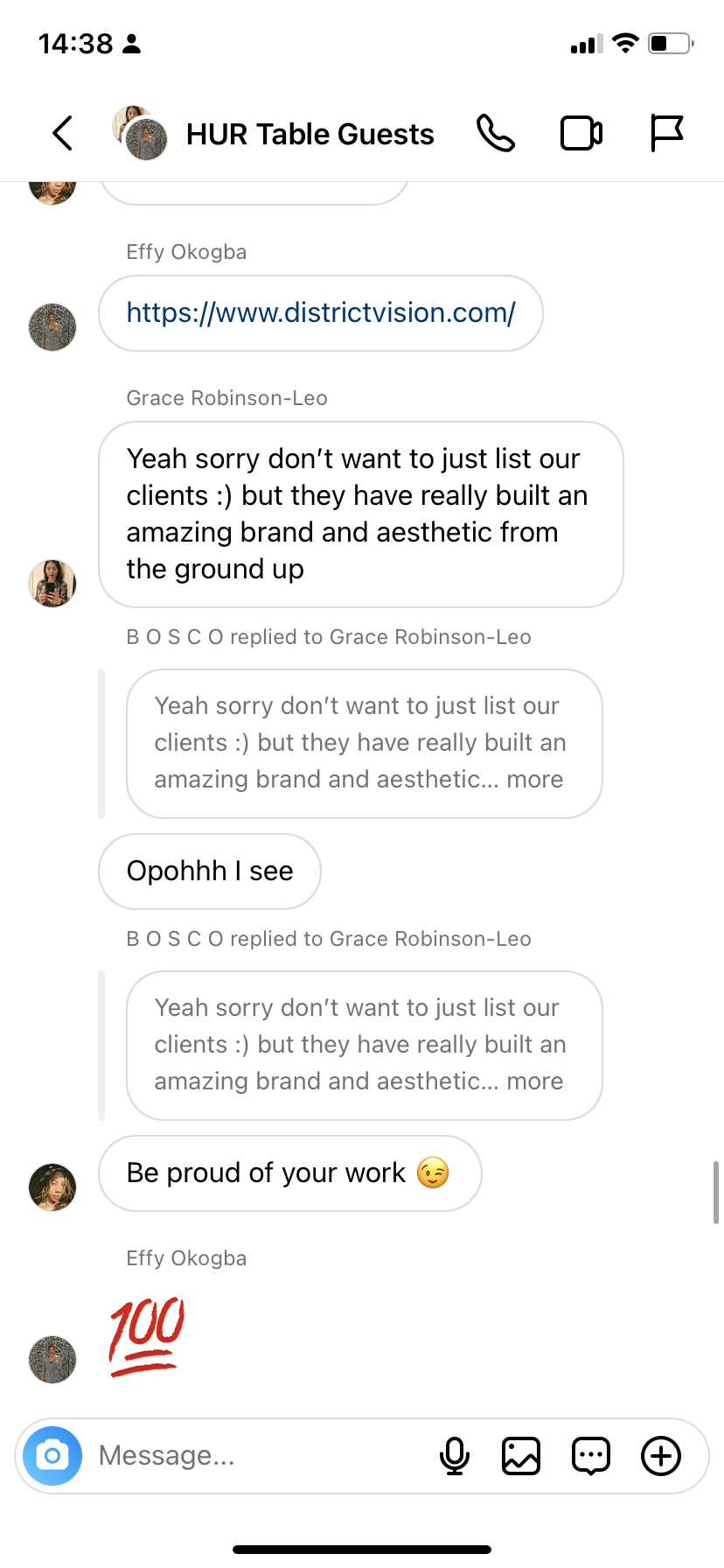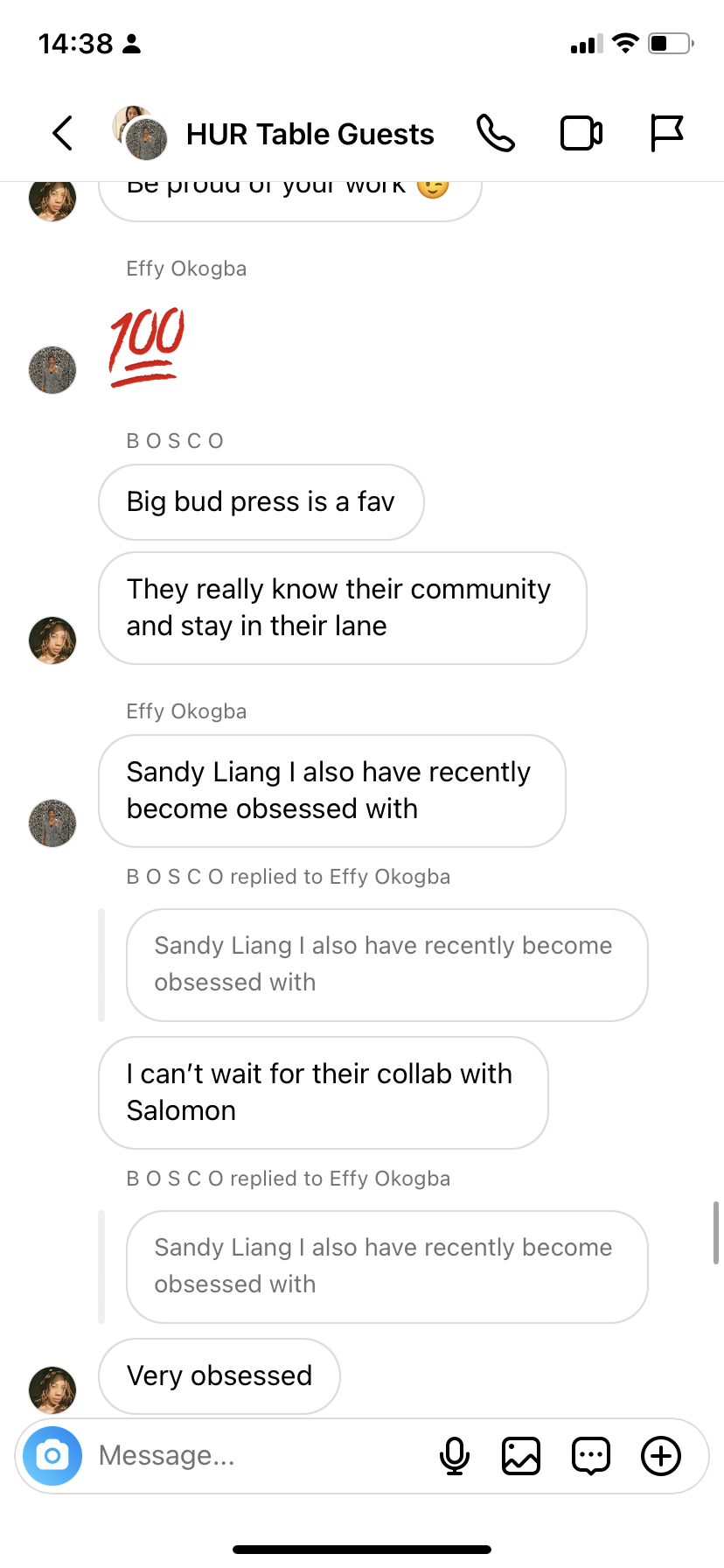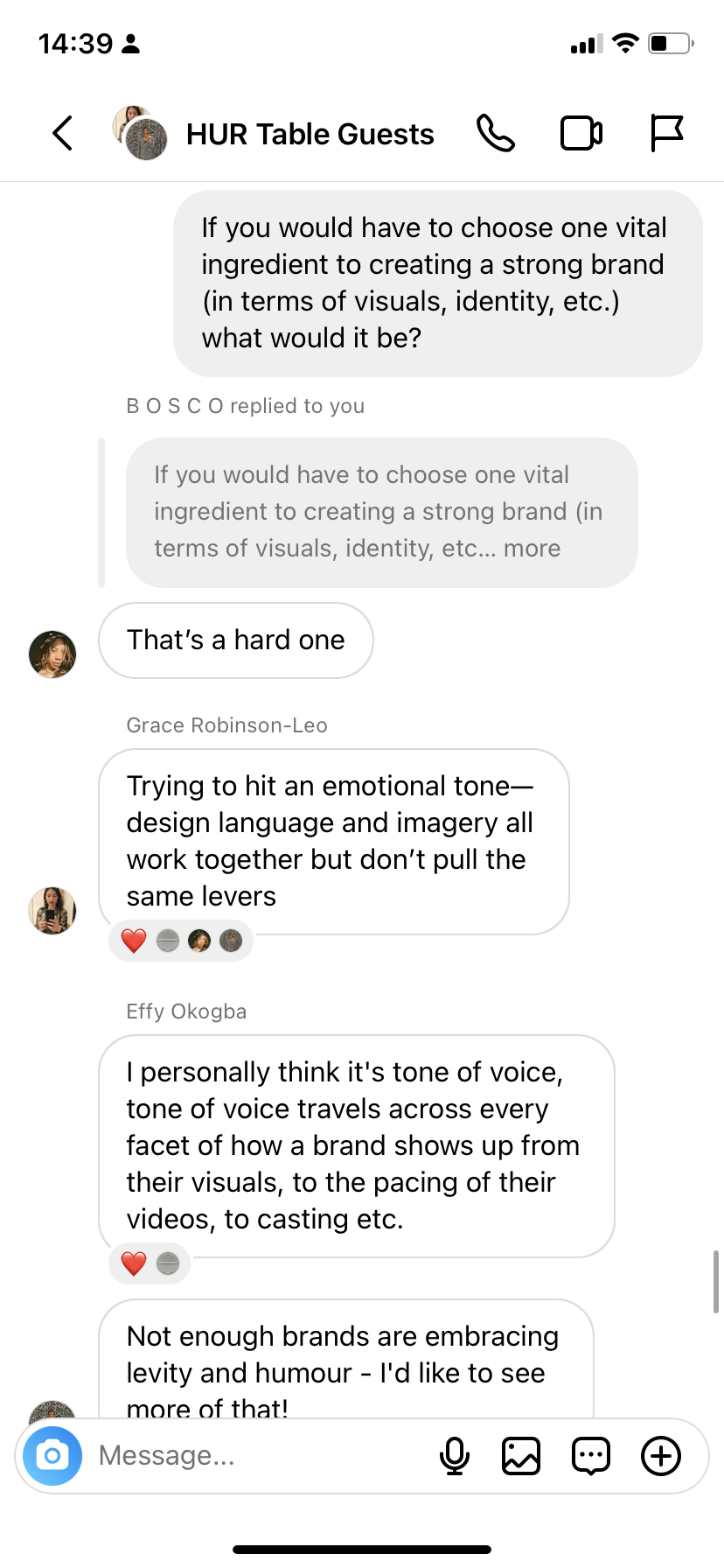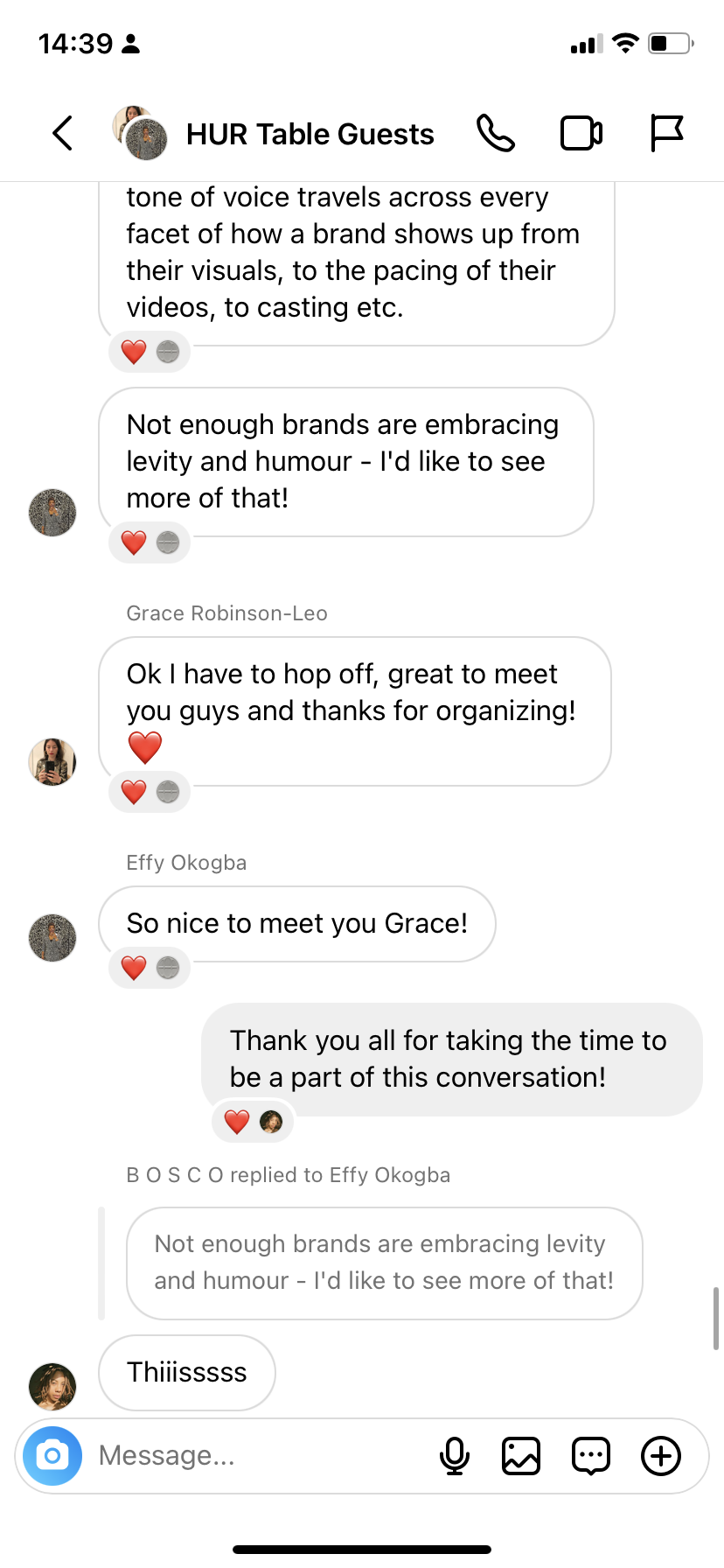Consumers Want Connection, Can Brands Deliver?
Courtesy of HURS
Consumers Want Connection, Can Brands Deliver?
with Brittany Bosco, Effy Okogba, Grace Robinson-Leo and Noemie Le Coz
By HURS Team
The role brands play in our lives has shifted in more ways than one. Nearly 80% of marketers say their industry changed more in the past three years than in the last 50. A factor that has significantly impacted the evolution of consumerism is digital media. The democratization of knowledge has led to a power shift – from corporations and brands to individuals. The rise of social media has allowed us to become our own experts and reviewers or sort out those whose opinions we trust to make more informed purchase decisions. With this shift came the necessity to overhaul how brands and products are presented to us. Since then, many brands have tried to crack the code on how to engage with consumers. But only a few have done so successfully.
The gap between brands and consumers isn’t as large as it used to be. Social media has created a direct line of communication between the two. While it sounds like a great opportunity, many brands have been reluctant to truly level with those who follow them. There’s an unwillingness to fully lift the curtain. Afraid to give up the image of perfection, some brands simply use social media as a new platform to promote their latest products or campaigns. Unfortunately, that’s not what consumers want. 86% of consumers say authenticity is a key reason they buy from a brand. In the isolated digital age, more than ever consumers are looking for connection. Both with other humans as well as with brands, beyond just social media. They want to be part of a community, with like-minded consumers, led by a brand that aligns with their values and POV of the world. It also grows the bottom line. A Harvard Business Review study found that consumers who are fully connected to a brand are worth 52% more to a business compared to someone who isn’t. But how can brands build these tribes around their businesses in a way that’s authentic and connects to today’s shopper?
BRITTANY BOSCO
Bosco is a multi-disciplinary artist and the founder behind art collective agency Slug Global. The company merges music, fashion and technology with a focus on telling stories from unique viewpoints in the black and female community. Offering 360 degree branding, animation and illustration, event production, graphic design, video production, web design, and social media strategy, Slug Global’s clients include Afropunk, Red Bull and Instagram amongst many others.
EFFY OKOGBA
Efemena ‘Effy’ Okogba is an award winning strategic marketing, editorial and brand leader and the CEO of The Digi Fairy. With her decade plus experience driving reach, relevance, and revenue for brands including: National Geographic, 20th Century Fox and most recently as Managing Director of Refinery29 in the UK, Germany and France. Effy's experience working in the audience, creative and content space in the UK, Australia and the U.S has informed her commitment to ensuring that cultural nuance and intersectionality is at the center of how she collaborates with brands to deliver the most culturally resonant content for next-gen and underrepresented audiences.
NOEMIE LE COZ
Noemie Le Coz is the Co-Creative Director and Co-Founder of New York-based design studio Little Troop. She’s also part-time Creative Director at body care brand, Billie, and mom to her 18-month old son, Luca. Her work aims to viscerally synthesize a unique balance of familiarity and newness — led by the desire to build timeless brands with true cultural relevance and an original, ownable point of view.
GRACE ROBINSON-LEO
Grace Robinson-Leo is the Co-Founder and Co-Creative Director of Decade, a small creative agency based in New York. Founded in 2017, Decade has created brand identities for Khaite, Edie Parker Flower, Soft Services, and District Vision and rebranded Banana Republic and Playboy. Robinson-Leo and her co-founder Rob Matthews both received MFAs in Graphic Design from Yale University.
We asked four industry insiders about the changing branding landscape, the shifting relationship between brands and consumers and the key ingredients for building a brand that connects to culture.



